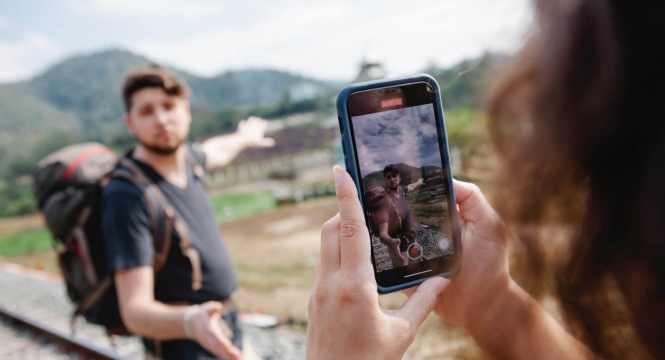Optimize Your Travel Blog For Search Engines With These Smart Tips

A travel blog is a website that provides information about travel destinations, experiences, and tips for travelers. It is an excellent platform for travel enthusiasts to share their experiences and help others plan their trips. Travel blogs can be optimized for search engines by using keywords related to travel, destinations, and experiences. This can help the blog rank higher on search engine results pages (SERPs), making it easier for potential readers to find it.

Additionally, creating high-quality content that provides value to readers, including helpful tips, recommendations, and detailed descriptions of destinations and experiences, can help increase the blog's visibility and credibility. By optimizing their travel blog for search engines, bloggers can reach a wider audience and grow their readership.
Below, read the full guide on how to optimize your travel blog for search engines with the great tips we'll provide to you.
Use Relevant Keywords
To optimize your travel blog for search engines, it is important to use relevant keywords throughout your content, including in your blog post titles. Start by researching relevant keywords for your niche using tools like Google Keyword Planner or SEMrush. Once you've identified your keywords, incorporate them naturally into your blog post titles and throughout your content, including in subheadings, image alt text, and meta descriptions. Don't overdo it with keyword stuffing, however, as this can hurt your search engine rankings. Additionally, focus on creating high-quality, engaging content that will keep readers on your site longer and encourage them to share your posts, which can also improve your search engine rankings.
Local Visibility
Using Google My Business is a great way to optimize your travel blog for local search engine rankings. It's a free tool that lets you manage your business information, including your blog, on Google's search results and maps. By claiming your Google My Business listing and keeping it up to date with accurate and complete information, you can increase your visibility for local searches related to your travel niche. This includes showing up in "near me" searches and appearing in Google Maps results. Make sure to include relevant keywords in your Google My Business listing as well. As the folks at PK SEO Services explain, if you want your website to rank well on Google, you need a comprehensive SEO management approach. Optimizing your travel blog for search engines can help increase traffic to your site, improve your search engine rankings, and ultimately grow your audience.
Quality Content
One of the most important ways to optimize your travel blog for search engines is by writing high-quality, engaging content that provides value to your readers. To do this, start by understanding your audience and what kind of information they're looking for. Make sure your content is well-written, well-researched, and informative, and use visuals like photos and videos to help illustrate your points. Keep your readers engaged with clear and concise writing, and make sure your content is easy to read with headings, subheadings, and bullet points. Finally, encourage readers to leave comments and engage with your content, as this can improve your search engine rankings and help you build a community around your blog.
Meta and Alt Tags
Another way to optimize your travel blog for search engines is by including descriptive meta tags and alt tags for your images. This is important because search engines can't read images, so you need to provide a description of what the image is about. When you upload an image to your blog, make sure to include an alt tag that describes the content of the image. Additionally, use descriptive meta tags that accurately describe the content of your blog post. This helps search engines understand what your content is about and can improve your search engine rankings. Don't forget to use relevant keywords in your meta tags and alt tags as well, but avoid keyword stuffing.

Internal Linking
Using internal linking to connect related content within your travel blog is another effective way to optimize for search engines. Internal linking helps search engines crawl and index your site more effectively and also keeps readers on your site longer by providing them with more content to explore. When writing new blog posts, try to link to other relevant content within your blog that expands on the topic. Use descriptive anchor text that clearly explains what the linked content is about. This can help improve the user experience on your blog and also signal to search engines that your site has valuable and interconnected content.
Build Backlinks
Building backlinks is an important factor in optimizing your travel blog for search engines. Backlinks are links from other websites that point to your site, and they signal to search engines that your content is authoritative and valuable. One way to build backlinks is by sharing your content on social media platforms and encouraging others to do the same. You can also reach out to other travel bloggers and websites to guest post and include a link back to your blog. Just make sure the guest post is relevant and provides value to the audience of the other site. Building backlinks can take time, but it's an effective way to improve your search engine rankings and increase traffic to your travel blog.
Mobile-Friendly and Fast-Loading
Making your travel blog mobile-friendly and fast-loading is crucial for optimizing it for search engines. With more people accessing the internet through mobile devices, search engines prioritize mobile-friendly sites. Use a responsive design that adjusts to different screen sizes and optimizes images and videos for faster load times. Also, use a fast and reliable hosting provider, minimize the use of large files, and use caching and compression tools. These optimizations not only improve your search engine rankings but also enhance the user experience, which can lead to increased engagement and traffic to your blog.
Fresh and Relevant Content
Regularly updating your travel blog with fresh, relevant content is key to improving your search engine rankings. Search engines prioritize sites that are regularly updated with new content, so make sure to publish new posts on a consistent basis. You can also update older posts with new information to improve their relevance. This signals to search engines that your blog is active and valuable, which can result in improved rankings and increased traffic to your site.
By using relevant keywords, creating high-quality content, building backlinks, and utilizing tools like Google My Business, you can create a search engine optimization strategy that helps your travel blog stand out online.





